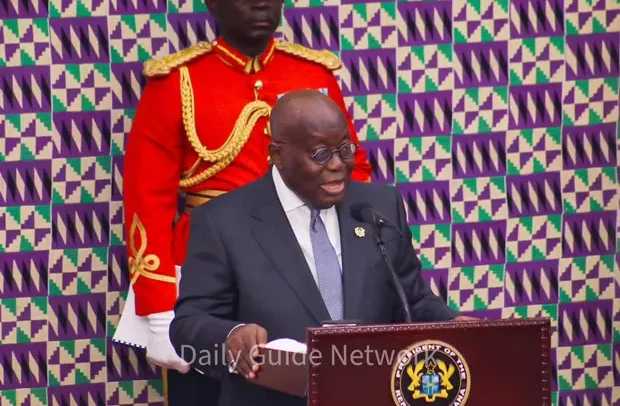
Background
The Gold for Oil (G4O) program emerged in response to the 1973 oil crisis, triggered by an oil embargo imposed by OPEC members, particularly Saudi Arabia, on nations perceived as supporting Israel in the Yom Kippur War (Birjandi, 2003). This crisis caused a global energy shortage and a surge in oil prices, prompting negotiations between oil-producing and importing countries to exchange oil for gold instead of conventional fiat currencies, allowing oil exporters to accumulate gold reserves (Falola & Genova, 2005).
In a contemporary context, the Republic of Ghana has introduced its variant of the Gold for Oil program to counter the escalating prices of petroleum products. Distinct in methodology, rationale, and structure, Ghana’s program addresses the substantial rise in gasoline and gasoil prices from GHS 6.90 in January to GHS 22.8 in December 2022, impacting various sectors. This surge, linked to inflation levels, triggered protests from organized labor due to the disproportionate increase in living costs against stagnant incomes.
Recognizing forex shortages and exchange rate issues as key contributors to the price hikes, the government implemented the Gold for Oil Program to stabilize the economy and alleviate the impacts of soaring fuel prices (Yalley, 2023). The new policy responds to challenges faced by oil importers in acquiring adequate foreign exchange, aiming to address the acute dollar crunch and ensure a stable supply of petroleum products.
G4O Program Overview
The Gold for Oil (G4O) program in Ghana operates as a cyclical policy facilitating the exchange of gold for oil, offering a strategic approach to oil import transactions. Initiated by the Bank of Ghana (BOG) and Precious Minerals Marketing Company (PMMC), the program involves purchasing gold in cedis under a petroleum purchasing agreement. A portion of this gold is then utilized to secure oil, leveraging the dual status of gold and oil as international reserves.
The BOG supplies the acquired oil to the Bulk Oil Storage and Transportation Company (BOST), which, in turn, certifies the oil’s specifications and signals the BOG to proceed with payment using the exchanged gold. BOST sells these oil products to Bulk Distribution Companies (BDCs) in cedis, enabling them to acquire products without the need for dollars. Consequently, BDCs can sell the products to Oil Marketing Companies (OMCs) in cedis, eliminating the dollar component in pricing calculations. This process ensures that OMCs do not require dollars for purchasing products from BDCs. Finally, OMCs sell the products to consumers at the pumps, and the revenue generated is deposited in cedis with the BOG, completing the cycle.
The overarching goal of this innovative program is to stabilize fuel prices and reduce dependency on foreign currencies for oil imports, promoting economic stability and self-sufficiency. The Gold for Oil (G4O) program in Ghana is strategically devised to eliminate the necessity for foreign exchange, specifically dollars, in the pricing mechanism of petroleum products. By intentionally excluding the exchange rate from the pricing formula for fuel and utilities, domestic fuel vendors are relieved of the requirement for foreign currency when importing petroleum products.
The government and implementing agencies envision that this policy shift will result in lowered product prices at the pumps, offering relief to the Ghanaian population. Officially launched on January 15, 2023, the G4O program has seen the Bulk Oil Storage and Transportation Company (BOST) receive 80,000 metric tons of gasoline and gasoil and a total of 25 different cargoes under this innovative policy. Now, 11 months into operation, it has become crucial to assess the program’s effectiveness in achieving its intended objectives. This paper undertakes the task of evaluating the impact of the G4O program and presents the authors’ stance based on the available evidence, seeking to provide a comprehensive understanding of the program’s performance. The assessment aims to discern the effectiveness of the G4O program and articulate the author’s position on its outcomes.
Objectives of the policy
Proponents, led by Vice President H.E Alhaji Dr. Bawumia, envision positive outcomes, including reduced pump prices, stabilized currency, and decreased inflation in petroleum-dependent products. These objectives form the foundation for assessing the program’s success.
Policy Concerns
The Gold for Oil (G4O) program in Ghana has faced criticism from Civil Society Organizations and petroleum experts, notably including Em. Prof. Iledare Wumi, Dr Steve Manteaw and Imani Ghana. Critics voice concerns about the program’s lack of transparency and the perceived interference of the government in a deregulated market. They argue that the deals made under the G4O program are shrouded in secrecy, raising potential worries about corrupt practices, and the role of middlemen in the transactions has become a prominent point of discussion. A notable example is the challenge posed by Dr. Manteaw, Co-Chair of the Ghana Extractive Industries, during a press conference in June 203, where he called on the government to disclose the names of third parties involved in the G4O transactions (Segbefia,2023).
Additionally, skeptics highlight a significant concern regarding the long-term sustainability of the program, emphasizing the need for a continuous and sufficient supply of gold to support the exchange for oil. Questions have been raised about the feasibility of this arrangement, raising doubts about the program’s ability to maintain an adequate reserve of gold to ensure its continued operation. These criticisms underscore the importance of addressing transparency and sustainability issues to foster confidence in the G4O program.
Moreover, critics of the policy are of the view that the decrease in the prices at the pump, is because of the decrease in the world market prices. Mr Benjamin Boakye, Director for ACEP and Dr Theo Achempong, Deputy Director for Imani Ghana, argued that the drop in fuel prices is because of the drop in the international price and stability of the study. (Ghana 2023, Adu-Owusu 2023).
Impacts of the Policy
While concerns voiced by Civil Society Organizations (CSOs) and experts about the Gold for Oil (G4O) program are acknowledged, it is important to note that, to date, none of these concerns have materialized. The program has demonstrated significant success since its inception, and several benefits substantiate this positive assessment.
The G4O program has effectively addressed the issue of foreign exchange dependency, particularly the need for dollars in the pricing of petroleum products. By eliminating direct reliance on the exchange rate in the pricing formula, the program has successfully spared domestic fuel sellers from the requirement of foreign currency for importing petroleum products. This reduction has impacted positively on the forex trading of the Cedi against the US Dollar.
The presented graph illustrates a consistent downward trend in fuel prices at the pumps, and relative stability in the Cedi Dollar Exchange rate since the inception of the program. This aligns with the observations of Steven Opata, the Head of Financial Markets at the Bank of Ghana, who emphasized that the government’s policy has spurred increased competition among traders, resulting in reduced pump prices and has drastically reduced the pressure exerted on the USD by petroleum importers.
The positive impact extends beyond fuel prices, as evident in the transportation sector The Ghana Private Road Transport Union’s announcement of a 10% reduction in transport fares in May 2023 attributed this favorable adjustment to the lowered petrol prices, providing much-needed relief to daily motorists and passengers (Lartey, 2023).
Supporting these tangible effects, the Ghana Statistical Service’s June Report indicates a consistent reduction in headline inflation, dropping from 54.1% in December 2022 to 35.2% in October portraying a positive economic outlook (Awal, 2023).
Analysis of Program Impact on Inflation and Transparency
The presented graph correlates Ghana’s inflation rate with fluctuations in petroleum prices at the pumps. This connection supports the assertion by Ampong (2022) that inflation in Ghana is significantly influenced by changes in petroleum prices. Notably, the graph illustrates a consistent reduction in headline inflation following the implementation of the Gold for Oil (G4O) program. This suggests a positive correlation between the program’s initiatives and the broader economic indicator of inflation.
The correlation observed in the graph aligns with the argument made by Ampong, emphasizing the critical role of petroleum prices in influencing inflation rates. The reduction in headline inflation since the introduction of the G4O program suggests that stabilizing petroleum prices through innovative economic measures can positively impact the overall cost of goods and services.
The analysis further underscores the positive impact of the G4O program on transparency within the petroleum sector. Contrary to concerns raised by critics, the strategic exchange of gold for oil has not resulted in corrupt practices. Instead, the program’s operations have been notably transparent, addressing worries about veiled deals and fostering confidence in the integrity of the initiative.
The seamless operation of the program for six months, with the Bulk Oil Storage and Transportation Company (BOST) receiving numerous cargoes of gasoline, speaks to the program’s sustained operational success. This success undermines concerns about the availability of gold to support the program in the long term, suggesting that the innovative approach is both feasible and effective.
Ex-Pump Prices Comparison
The graph below illustrates the comparison of ex-pump prices before and after the introduction of the Gold for Oil (G4O) program in Ghana. The data reflects a consistent reduction in ex-pump prices despite marginal reductions in world market prices.
The introduction of the G4O program has significantly impacted ex-pump prices, eliminating the need for dollars in the pricing mechanism. The data reveals a notable reduction in ex-pump prices from October 2022 to October 2023, despite only a marginal decrease in world market prices.
October 2022:
- World Market Price: $99
- Ex-Pump Price: GHS 19.8
October 2023:
- World Market Price: $97 (a 2% reduction)
- Ex-Pump Price: GHS 12.8 (a 36% reduction)
This reduction in the ex-pump price is substantial, showcasing the effectiveness of the G4O program in achieving its goal of stabilizing fuel prices and reducing dependency on foreign currencies. The innovative approach of eliminating the dollar component in pricing calculations has translated into tangible benefits for consumers, providing economic relief and contributing to a more stable domestic market.
The graph supports the assertion that the G4O program has directly influenced the reduction in ex-pump prices, emphasizing its positive impact on the economic well-being of the Ghanaian population. This evidence further reinforces the success of the program in achieving its objectives and suggests that the G4O model could serve as a viable template for other nations facing similar economic challenges.
Conclusion and Recommendations
In conclusion, the Gold for Oil (G4O) program in Ghana has demonstrated a significant positive impact on fuel prices and broader economic indicators, supporting its continuation. While acknowledging concerns raised by stakeholders, the evidence suggests that the program has successfully addressed foreign exchange dependency, reduced fuel prices, and contributed to economic stability. To ensure the sustained success of the program and maintain public trust, it is imperative for implementing agencies to prioritize transparency.
The following recommendations are proposed:
Transparency Measures: Implementing agencies should proactively disclose detailed transaction information related to the G4O program on their official websites.
Publicly accessible records will enable verification, scrutiny, and contribute to enhanced accountability in the program’s implementation.
Regular updates on gold reserves, oil transactions, and financial aspects should be made available for public scrutiny.
Refining of Country’s Gold: As a matter of urgency, the Ghanaian government should explore options for refining the country’s gold before engaging in transactions under the G4O program. Exchanging refined gold for petroleum products will enhance the economic value of the exchanged assets and contribute to a more sustainable and efficient economic model.
Public Awareness and Engagement: Launch public awareness campaigns to educate the citizens about the G4O program, its objectives, and the positive impacts achieved.
Encourage public engagement and feedback mechanisms to foster a sense of involvement and ownership among the Ghanaian population.
Continuous Monitoring and Evaluation: Establish a robust system for continuous monitoring and evaluation of the G4O program’s performance. Regularly assess the economic indicators, fuel prices, and overall impact to adapt the program to changing circumstances and optimize its effectiveness.
Stakeholder Consultations: Facilitate open consultations with key stakeholders, including Civil Society Organizations, experts, and the public, to address concerns and gather diverse perspectives on program implementation.
By implementing these recommendations, Ghana can ensure that the G4O program remains transparent, accountable, and responsive to the needs of the population. This approach will not only sustain the positive impacts achieved but also serve as a model for responsible and innovative economic policies globally.
Reference
- Adu-Owusu, P. (2023, March 18). Drop in fuel prices not entirely because of Gold-for-Oilpolicy – Dr Theo Acheampong -MyJoyOnline. MyJoyOnline. https://www.myjoyonline.com/drop-in-fuel-prices-not-entirely-because-of-gold-for-oil-policy-dr-theo-acheampong/
- Ampong, M. (2022, September 30). Rising fuel prices – why?? Are we alone in this? The Business & FinancialTimes. https://thebftonline.com/2022/03/28/maxwell_investments_group_max well_ampong_mig_rising-fuel-prices-why-are-we-alone-in-this/#:~:text=This is because the increase,living standards of the people.
- Asare, W. (2023, June 12). The success of “gold for oil policy”: Bawumia and Opoku Prempeh vindicated. Asaase Radio. https://asaaseradio.com/success-of-gold-for-oil-policy-bawumia-opoku-prempeh-vindicated/
- Awal, M. (2023, July 13). June inflation rises marginally to 42.50%. The Business & Financial Times. https://thebftonline.com/2023/07/13/june-inflation-rises-marginally-to-42-50/
- Birjandi, H. S. (2003). Energy and globalization. Illinois State University.
- Falola, T., & Genova, A. (2005). The politics of the global oil industry: an introduction. Greenwood Publishing Group.
- Ghana, M. (2023, March 16). Fuel price drop nothing to do with gold for oil policy – ACEP. Modern Ghana. https://www.modernghana.com/news/1218471/fuel-price-drop-nothing-to-do-with-gold-for-oil.html
- https://www.globalpetrolprices.com/data_download.php?download
- In-Text Citation: (Transport Fares to Go Down by 10 Percent from May 17, 2023)
- Lartey N.L. (2023, May 15). Transport fares to go down by 10 per cent from May 17 Citinewsroom – Comprehensive News in Ghana. https://citinewsroom.com/2023/05/transport-fares-to-go-down-by-10-percent-from-may-17/
- Nchor, D., Klepá?, V., & Adamec, V. (2016). Effects of oil price shocks on the Ghanaian economy. Acta Universitatis Agriculturae et Silviculturae Mendelianae Brunensis, 64(1), 315-324.
- Nunoo C. (2023 March 16) Gold-for-Oil policy – $4.8bn to be saved yearly- Dr Bawumia graphic.com.gh/news/general-news/gold-for-oil-policy-4-8bn-to-be-saved-yearly-dr-bawumia.htm
- Segbefia, L. (2023, June 12). Publish names of third-party dealers involved in ‘Gold for Oil’ programme – CSOs – MyJoyOnline. https://www.myjoyonline.com/publish-names-of-third-party-dealers-involved-in-gold-for-oil-programme-csos/
- Yalley C. (2023 November 7.). Bulk Oil Distributors Facing Acute Dollar Crunch. https://www.myjoyonline.com/bulk-oil-distributors-facing-acute-dollar-crunch
The post An assessment of the gold-for-oil program: a position paper appeared first on The Business & Financial Times.
Read Full Story





















Facebook
Twitter
Pinterest
Instagram
Google+
YouTube
LinkedIn
RSS